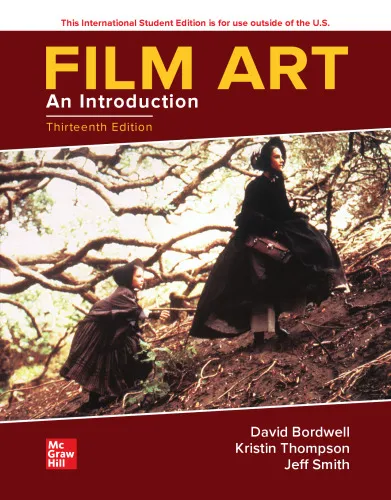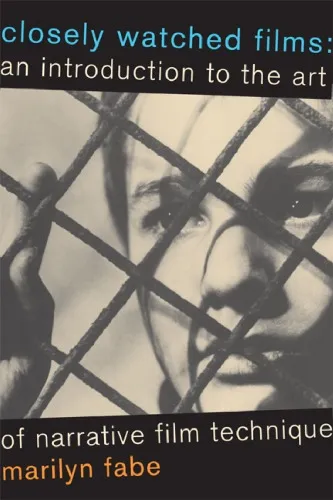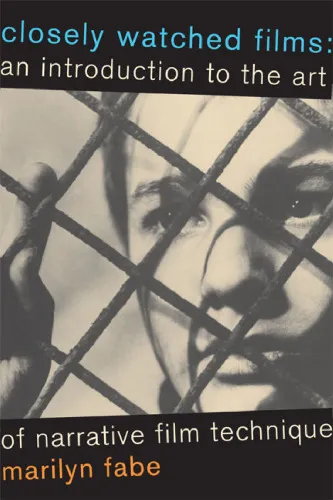Brechtian Cinemas: Montage and Theatricality in Jean-Marie Straub and Danièle Huillet, Peter Watkins, and Lars Von Trier
4.6
بر اساس نظر کاربران

شما میتونید سوالاتتون در باره کتاب رو از هوش مصنوعیش بعد از ورود بپرسید
هر دانلود یا پرسش از هوش مصنوعی 2 امتیاز لازم دارد، برای بدست آوردن امتیاز رایگان، به صفحه ی راهنمای امتیازات سر بزنید و یک سری کار ارزشمند انجام بدینکتاب های مرتبط:
معرفی کتاب «Brechtian Cinemas: Montage and Theatricality in Jean-Marie Straub and Danièle Huillet, Peter Watkins, and Lars Von Trier»
کتاب «Brechtian Cinemas» نوشتهی "نناد یووانوویچ"، تحلیل دقیقی از کاربرد مفاهیم برشتی در سینما، به ویژه در آثار کارگردانان مطرحی مانند ژان-ماری استروب و دانیله هویه، پیتر واتکینز و لارس فون تریر ارائه میکند. این کتاب با بررسی تکنیکهای Montage و Theatricality، نشان میدهد که چگونه این فیلمسازان با رویکردی انتقادی و تئاتری به سینما، روایتهای تازهای از داستانگویی و فرم ارائه دادهاند.
خلاصهای از کتاب
این کتاب، سینمای برشتی را با دو مفهوم کلیدی بررسی میکند: Montage (مونتاژ) و Theatricality (تئاتری بودن). نویسنده در این اثر نشان میدهد که چگونه این دو عنصر به فیلمسازان کمک میکنند تا از فرمهای روایی سنتی فاصله گرفته و به فرمی انتقادیتر و مستقیمتر روی بیاورند. هر فصل این کتاب به بررسی یک یا چند فیلم از سه کارگردان بزرگ، یعنی استروب و هویه، واتکینز و فون تریر، اختصاص یافته است.
«Brechtian Cinemas» به شیوهای ژرف به مفاهیم فاصلهگذاری، مخاطبآگاهی و بازاندیشی درباره فرم سینما میپردازد. در واقع، اثر نشان میدهد که این فیلمسازان از تکنیکهای برشتی مانند شکستن دیوار چهارم و استفاده از فرمهای غیرمعمول تدوین استفاده میکنند تا تماشاگر را به تأمل وادار کنند، نه اینکه فقط او را سرگرم کنند.
نکات کلیدی
- تکنیک Montage به عنوان ابزاری برای ایجاد گسست و فاصلهگذاری.
- استفاده از Theatricality برای برجسته کردن نقش مخاطب در ساخت معنای فیلم.
- تحلیل آثار کلیدی مانند «Chronicle of Anna Magdalena Bach»، «The Commune»، و «Dogville».
- درک رابطه بین فلسفهی برشت و فرمهای مدرن سینمایی.
- شناخت پیچیدگیهای زبان سینمایی که این کارگردانان به کار گرفتهاند.
جملات مشهوری از کتاب
"Montage and Theatricality are not just methods; they are rebellions against the cinema of comfort and distraction."
"The Brechtian filmmaker does not seek to entertain; they seek to awaken."
چرا این کتاب اهمیت دارد؟
کتاب «Brechtian Cinemas» از جمله مطالعاتی است که رابطهی میان سینما و تئاتر را به شیوهای عمیق بررسی میکند. این اثر نشان میدهد که چگونه سینما میتواند با وام گرفتن از اصول تئاتری برشتی، نه تنها به ابزاری انتقادی تبدیل شود، بلکه بتواند تماشاگر را به شیوهای متفاوت با واقعیتهای اجتماعی روبهرو کند. برای علاقهمندان به مطالعات سینمایی، فلسفهی برشت و تحلیل فرمهای روایی غیرمعمول، این کتاب نقشی کلیدی در درک بهتر سینماهای متفاوت ایفا میکند.
Welcome to 'Brechtian Cinemas: Montage and Theatricality in Jean-Marie Straub and Danièle Huillet, Peter Watkins, and Lars Von Trier,' a critical exploration of cinema that challenges and redefines traditional modes of cinematic storytelling. This book delves into the pioneering contributions of three visionary filmmakers and their relationship to the Brechtian aesthetic principles of montage, theatricality, and audience engagement.
Detailed Summary of the Book
In 'Brechtian Cinemas,' I investigate how the techniques of montage and theatricality, as conceived by German playwright and theorist Bertolt Brecht, find a compelling resonance in the works of Jean-Marie Straub and Danièle Huillet, Peter Watkins, and Lars Von Trier. Brecht’s ideas sought to distance audiences from emotional immersion and instead provoke critical reflection—an aesthetic and political project that these filmmakers expand upon in unique and diverse ways.
The book begins by contextualizing Brechtian theory in cinema, examining its core tenets such as the “alienation effect,” the fragmentation of narrative, and an overt theatricality that refuses to naturalize power structures or storytelling conventions. These elements challenge both the medium of cinema and its viewers, encouraging an active dialogue rather than passive consumption.
The first section analyzes Jean-Marie Straub and Danièle Huillet, whose rigorously minimalist films redefine perception and political engagement. Their adoption of long takes, anti-illusionist staging, and audacious use of sound and silence reflect Brecht’s critique of conventional realism. The chapter connects their revolutionary approach to the ethos of resistance embedded in their cinematic language.
The second section is devoted to Peter Watkins, a maverick filmmaker who critiques the structures of media monopoly and audience manipulation. Watkins employs pseudo-documentary formats, ensemble casts, and direct audience addresses to foster a Brechtian mode of critical spectatorship. His films interrogate the role of media in shaping historical memory and collective imagination.
Finally, Lars Von Trier’s provocative and often polarizing works are examined for their deeply theatrical elements. Blurring boundaries between melodrama and critique, Von Trier’s films engage with Brechtian strategies, visibly integrating performance, self-reflectivity, and disruptions of the cinematic apparatus into their fabric. From 'Dogville' to 'Breaking the Waves,' his oeuvre becomes a site of ongoing tension between emotion and intellectual inquiry.
Key Takeaways
- Brechtian cinema challenges traditional storytelling by prioritizing intellectual engagement over emotional immersion.
- Montage and theatricality are not just stylistic tools but critical devices for reshaping the audience’s perception of reality.
- Jean-Marie Straub and Danièle Huillet emphasize austerity and precision in deconstructing cinematic language.
- Peter Watkins uses pseudo-documentary techniques to critique media and underscore the constructed nature of history and representation.
- Lars Von Trier leverages theatricality to provoke both discomfort and critical reflection, compelling viewers to question narrative and morality.
Famous Quotes from the Book
"Brechtian cinema does not demand spectators to feel; it demands them to think, to see the scaffolding of ideology, and to imagine other ways of being."
"The films of Straub and Huillet offer not entertainment but an opportunity for rigorous perception; they teach us to listen, to observe, to question."
"The Brechtian rupture is not an interruption—it is an invitation to engage with the world outside the frame."
Why This Book Matters
'Brechtian Cinemas' is a vital contribution to film theory and criticism, especially at a time when media consumption often prioritizes spectacle over substance. By revisiting and reinterpreting Brecht’s ideas through the lens of contemporary and modernist filmmakers, this book offers a new perspective on the transformative potential of cinema as a tool for political and social engagement.
For scholars, students, and cinephiles, the book serves as a roadmap for understanding narrative disruption, audience agency, and the critical possibilities of film. It is a call to rethink cinema not simply as a mechanism for storytelling but as an active, participatory dialogue between filmmaker, audience, and reality.
دانلود رایگان مستقیم
شما میتونید سوالاتتون در باره کتاب رو از هوش مصنوعیش بعد از ورود بپرسید
دسترسی به کتابها از طریق پلتفرمهای قانونی و کتابخانههای عمومی نه تنها از حقوق نویسندگان و ناشران حمایت میکند، بلکه به پایداری فرهنگ کتابخوانی نیز کمک میرساند. پیش از دانلود، لحظهای به بررسی این گزینهها فکر کنید.
این کتاب رو در پلتفرم های دیگه ببینید
WorldCat به شما کمک میکنه تا کتاب ها رو در کتابخانه های سراسر دنیا پیدا کنید
امتیازها، نظرات تخصصی و صحبت ها درباره کتاب را در Goodreads ببینید
کتابهای کمیاب یا دست دوم را در AbeBooks پیدا کنید و بخرید
1223
بازدید4.6
امتیاز50
نظر98%
رضایتنظرات:
4.6
بر اساس 0 نظر کاربران
"کیفیت چاپ عالی بود، خیلی راضیام"
Questions & Answers
Ask questions about this book or help others by answering
No questions yet. Be the first to ask!
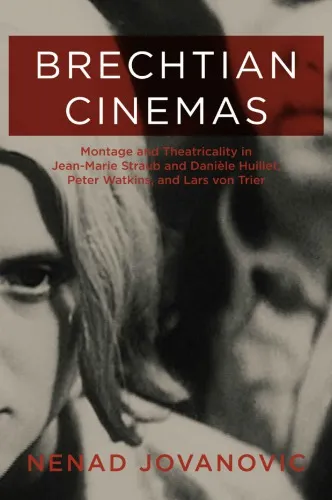

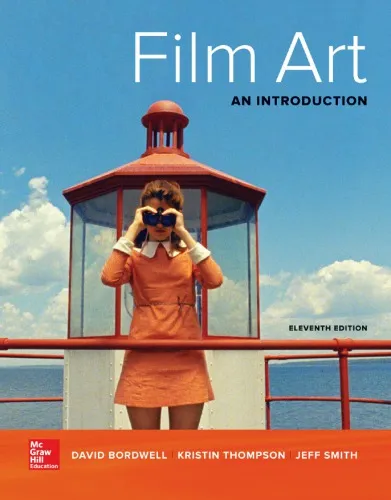
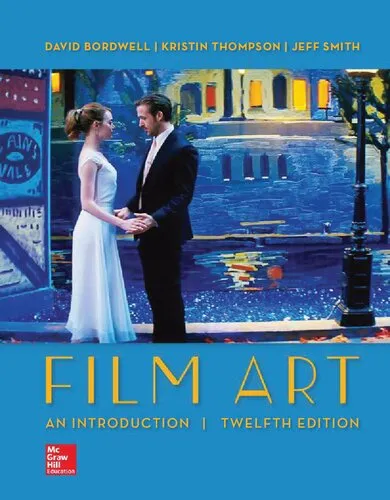
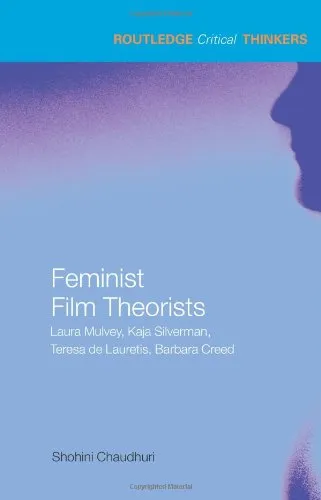
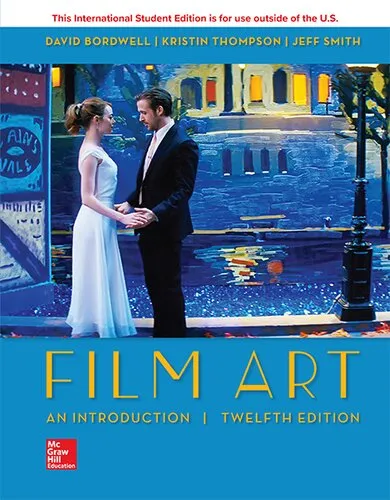
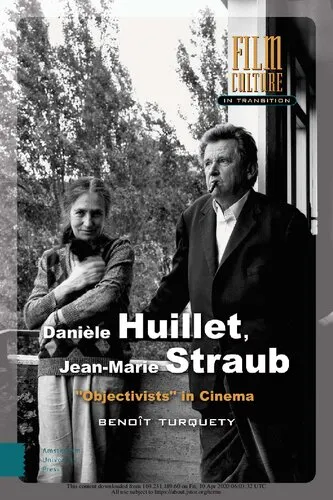
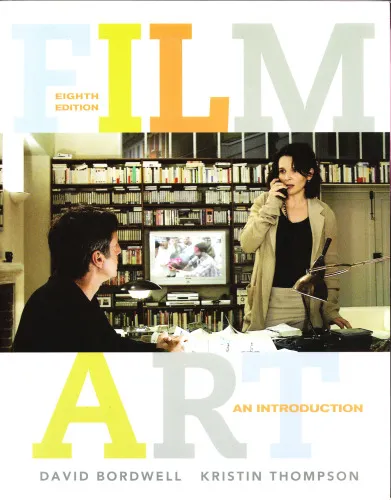
![Film Art: An Introduction [with Connect Access Code]](https://s3.refhub.ir/images/thumb/Film_Art__An_Introduction__with_Connect_Acces_45912.webp)
